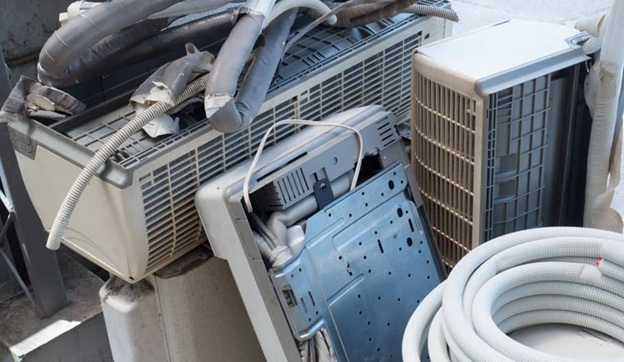
Recycling is an important way to protect our environment and reduce waste. By recycling, we can turn old materials into new products, save energy, and reduce pollution. Many people think of recycling as just separating paper, plastic, and glass, but recycling actually includes many different types.
Understanding these types can help everyone make better choices and contribute to a cleaner planet. In this article, we will explore five types of recycling that you should know about.
Plastic Recycling
Plastic is one of the most common materials in our daily lives. Recycling plastic helps reduce the amount of waste that ends up in landfills and oceans. When we recycle plastic, it can be turned into new items like bottles, containers, and even clothing.
Plastic recycling also saves energy compared to making new plastic from raw materials. People can recycle plastic at home by sorting it properly and sending it to recycling centers. It is important to rinse the containers before recycling to avoid contamination.
Paper Recycling
Paper recycling is a simple and effective way to save trees and protect forests. Old newspapers, cardboard, and office paper can all be recycled. When paper is recycled, it is processed into pulp and made into new paper products.
This process reduces the need to cut down trees and uses less water and energy than producing paper from scratch. Schools, offices, and households can all participate by separating paper from other trash.
Electronic Waste Recycling
Electronic waste recycling deals with old or broken electronics like phones, computers, and TVs. Electronic waste, or e-waste, contains harmful chemicals that can pollute soil and water if not handled properly.
Recycling electronics allows valuable materials like gold, silver, and copper to be recovered and reused. The electronic waste recycling also prevents dangerous chemicals from harming the environment and human health.
Air Conditioner Recycling
Air Conditioner Recycling focuses on safely disposing of old or broken air conditioners. These devices contain refrigerants and other chemicals that can be harmful to the environment if released. Recycling air conditioners allows metals, plastics, and refrigerants to be recovered and reused in new products.
Proper Air Conditioner Recycling also prevents harmful gases from contributing to air pollution and climate change. Specialized recycling companies handle this process to ensure that everything is disposed of safely.
Glass and Metal Recycling
Glass and metal recycling are important because both materials can be reused indefinitely. Old glass bottles, jars, aluminum cans, and tin containers can all be recycled. Recycling glass reduces the need to mine sand and other raw materials, while metal recycling saves energy compared to producing new metals.
Both glass and metal can be melted and reshaped into new products without losing quality. By participating in glass and metal recycling, communities can reduce waste and conserve natural resources.
Conclusion
Recycling is more than just throwing items into the right bin. By learning about different types of recycling, such as plastic, paper, electronic waste, air conditioners, glass, and metals, everyone can make a positive impact on the environment.
Recycling saves energy, conserves natural resources, and reduces pollution. Simple actions like separating materials at home and taking old electronics or air conditioners to proper recycling centers can make a big difference.
